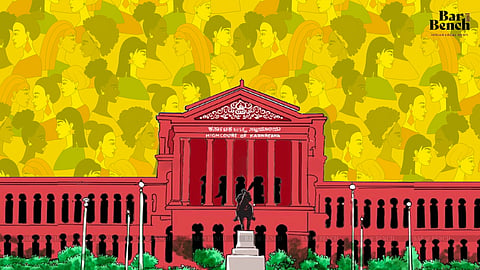
- News
- Columns
- Interviews
- Law Firms
- Apprentice Lawyer
- Legal Jobs
- हिंदी
- ಕನ್ನಡ

The Karnataka High Court recently held that exclusion of a married daughter for grant of an identity card (I-card) to dependents of ex-servicemen is violative of Articles 14 and 15 of the Constitution [Priyanka Patil v Kendriya Sainik Board].